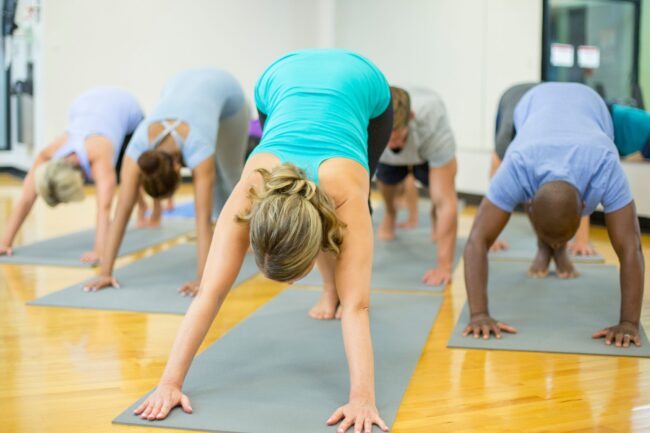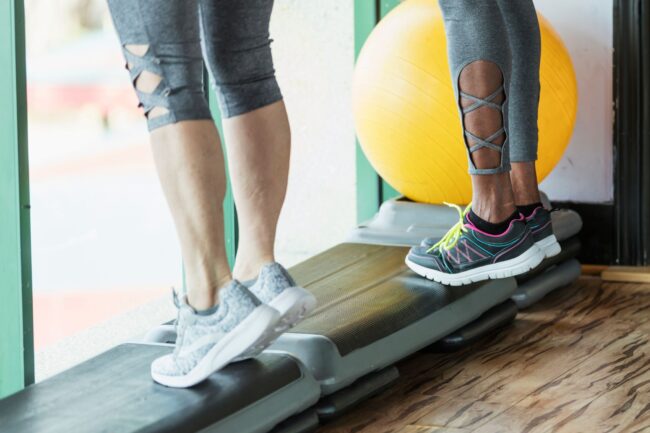Varicose veins are swollen and twisted veins that usually occur in the legs. They can cause pain, discomfort, and an unsightly appearance. If you’re seeking varicose veins treatment, your doctor will probably ask about your daily routine, including exercise. So if you’re wondering about the best exercises for varicose veins, keep reading.
How does exercise help varicose veins?
Our bodies depend on our veins to deliver blood back to the heart. Forces like our breathing and muscle movement can help transport our blood in the right direction. Our leg veins need to push blood upwards against gravity. And so, they rely on our leg muscle movement to pump blood. When you don’t move these muscles enough, blood starts to pool, increasing venous pressure and weakening the veins and valves.
While it isn’t a cure, exercise is one effective way to relieve varicose veins symptoms. Leg exercises, in particular, are a great way to reduce swelling in your veins. Working your calf muscles helps pump blood back up to your heart, improving your overall blood circulation. Additionally, regular exercise can help reduce inflammation and weight management, decreasing the pressure excess weight may put on the veins.
What exercises are good for varicose veins?
In this article, we will provide some sample exercises to help alleviate varicose veins symptoms in your legs.
Walking
The types of movement that are generally safe for varicose veins include low-impact exercises like walking. Most doctors recommend walking as it strengthens the calf muscles without putting strain on the body. So if you’re just easing into exercising, walking is a great way to get started. Plus, it’s easy to incorporate into your routine if you run a busy schedule.
Whether it’s for prevention or symptom relief, keep your circulation going by walking every day. Start with around 30 minutes a day, five days a week, then slowly increase your pace.
Cycling
Pedalling is a great exercise for varicose veins. It works the calf muscles, stimulates blood flow, and improves leg strength. So, it’s no wonder this cardiovascular workout can help manage your varicose veins symptoms.
If you’re into cycling, going on a 30-minute bike ride three to four times a week is great for boosting your circulation. But as with many other exercises, it’s best to do this in moderation. Going on long-distance rides can do more harm than good as it can strain the leg veins.
And if you don’t have a bike, bicycle leg stretches can help you work the same muscles. Lay down on the floor and pedal your legs in the air. Do this for 3 sets of 15 repetitions.
Yoga

People in a yoga studio doing the downward-facing dog pose.
Yoga is a popular low-impact exercise that is good for the veins. Yoga stretches can help improve muscle contractions and relieve pain and soreness in the legs.
Certain yoga poses like the downward-facing dog, the legs-up-the-wall pose, and the bridge pose can help improve circulation and reduce inflammation in the legs. Yoga is also a great way to improve flexibility and strength, which can benefit overall leg health.
Swimming
Swimming is one of the best low-impact exercises for varicose veins as it can help you improve circulation and reduce inflammation. If you have joint pain or mobility issues, this is a great sport and a great way to get a full-body workout in.
If this is your choice of exercise, aim for at least two to three sessions per week at 30 minutes each to see the most benefits.
Lunges
Lunges give your muscles flexion and extension from the ankle up to the calves. When done correctly, this helps stimulate flow throughout your body.
Here’s a guide on how to do a proper lunge:
- Stand straight in a starting position
- Take one step back, bend the knees, then slowly lower your body until your legs reach a 90-degree angle
- Pause for a few seconds, then return to the starting position
- Repeat with the other leg and do this for about 10-15 repetitions
Calf Raises

Two people standing side by side at the gym doing calf raises. The shot focuses on their lower legs as they lift their heels off the ground
Calf raises are a simple exercise that you can do anywhere. It’s an especially good choice if you need to stand for long hours. Raising your calves helps stimulate blood flow, particularly in the lower legs. To do calf raises, here’s a guide you can follow:
- While standing in a neutral position, slowly tiptoe as you lift your heels above the ground. You should be able to feel the muscles tense in your calf area.
- Hold for a few seconds, then release. Do 3 sets with 10-15 repetitions.
Stretches
Stretching is an important part of any exercise routine and can benefit you if you have varicose veins. Here are some stretches to help alleviate symptoms and improve circulation in the legs:
- Seated forward fold: Sit on the floor with your legs stretched out in front of you. Reach forward with both hands as if you’re trying to touch your toes. Hold for 30 seconds, then release.
- Butterfly stretch: Sit on the floor with the soles of your feet touching each other. Use your hands to gently press your knees toward the floor. Hold for 30 seconds, then release.
- Standing hamstring stretch: Stand with your feet shoulder-width apart. Step forward with one foot and straighten your front leg. Lean forward, reaching for your toes. Hold for 30 seconds, then switch sides.
- Wall calf stretch: Stand facing a wall, with your hands on the wall at shoulder height. Step back with one foot and press your heel into the floor. Hold for 30 seconds, then switch sides.
Ankle Rotations
These are easy to do while sitting down, so are great for office workers and people who spend a lot of time travelling. Flexing your calf muscles and rotating your ankles helps to maintain healthy blood flow. Also, while sitting or standing, rocking your feet on the ground from heel to toe activates the calf pumping mechanism and improves circulation.
Know what to avoid
It’s also important to know what to avoid. Weightlifting can cause excess strain on the lower veins and damage already weakened vessels. It is therefore important to speak to your doctor before trying. Running is also a tricky one, as the benefit of boosted circulation can be countered by excess strain on the joints and impaired blood flow elsewhere.
Talk to a professional
Not all exercises for varicose veins will be suitable for you, especially if your case is more severe. So, before starting any exercise program, consult with your doctor.
And if you’re concerned about symptoms you’re experiencing like pain, swelling, or skin discolouration, speak with a doctor about the best treatment option for you.
At The Vein Institute, we offer non-surgical treatments that are minimally invasive and require little to no downtime. Our walk-in walk-out treatments are safe and effective and are performed by highly experienced doctors.
Schedule your initial consultation today by giving us a call at 13 VEINS (13 83467) or by booking online.